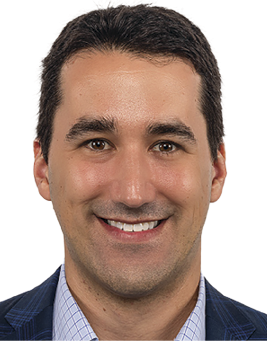- Acne
- Actinic Keratosis
- Aesthetics
- Alopecia
- Atopic Dermatitis
- Buy-and-Bill
- COVID-19
- Case-Based Roundtable
- Chronic Hand Eczema
- Chronic Spontaneous Urticaria
- Drug Watch
- Eczema
- General Dermatology
- Hidradenitis Suppurativa
- Melasma
- NP and PA
- Pediatric Dermatology
- Pigmentary Disorders
- Practice Management
- Precision Medicine and Biologics
- Prurigo Nodularis
- Psoriasis
- Psoriatic Arthritis
- Rare Disease
- Rosacea
- Skin Cancer
- Vitiligo
- Wound Care
News
Article
Dermatology Times
My Patient Claims He Has a Property Right Forcing Me to Treat Him. What Does That Mean?
Author(s):
This month's Legal Eagle column examines if patients have a legal property right to health care, given public funding of medical education.
“Dr Oncology,” who has been in practice for 20 years, has a large number of patients with skin cancer. He is recognized as being one of the best cutaneous oncologic physicians in his state. Over the past 10 years, he has seen “Mr Skin” for multiple skin cancers. The last time Mr Skin was seen in Dr Oncology’s office was 3 years ago. After that visit, Mr Skin was discharged from the practice for not showing up for numerous appointments as well as refusing to pay either insurance deductibles or co-pays 3 times over 2 years. Since then, Mr Skin has found a different dermatologist. The new dermatologist recently biopsied a lesion on Mr Skin that proved to be an early invasive melanoma. Mr Skin, understandably anxious, seeks an appointment with the “skin cancer expert,” Dr Oncology.
Mr Skin is given an appointment to see Dr Oncology. However, when Dr Oncology notices Mr Skin in the waiting room, he refuses to see him. Mr Skin is furious and seeks to sue Dr Oncology for not seeing him. A law student friend tells Mr Skin that legal experts have increasingly reexplored the notion that patients seeking medical care may have a property right to that care. He says this has been an increasingly discussed issue over several recent US presidential races. What is this property right? Does it exist?
Medical education is an extraordinarily expensive enterprise. It is heavily dependent on public funding. The total educational costs for an MD degree have increased every decade. In general, new physicians often carry enormous debt once they have graduated (there are some exceptions such as the tuition-free medical school education now at several US medical schools). Yet, physicians entering practice have paid only 2.3% to 21% of the total direct costs of their own education. The rest of the funds come from a variety of sources. The public contribution to these funds varies tremendously from school to school. On average, though, direct state and federal government appropriations and government-funded grants and contracts constitute about 38% of total revenue.
For graduate medical education (GME), the taxpayer funds an even greater proportion of physician training. Almost 20 years ago, Medicare was contributing $76,530 per resident. That number has increased tremendously since then. Since the American taxpayer does underwrite a substantial share of physician training, patients, as well as some legislators, feel strongly that Americans have a right to health care and to see the physician of their choice. This would include Mr Skin’s right to see Dr Oncology.
Financial support for medical research has also evolved into a publicly funded model. Almost 83% of biomedical research articles and 80% of clinical research articles come from either government sources or academic institutions for which public funds pay the majority of the research costs.
What becomes clear is that American medicine, while not wholly publicly funded, still requires public funding for its existence. Few physicians would ever be trained if they had to underwrite the full cost of their training.
At a minimum, the public’s substantial investment in educating physicians, financing the delivery of health care, and funding medical research must be viewed as a potential property interest of the public. If the public pays for the training of physicians, can it be argued that the public has an ownership property interest in American health care? In both legal and economic terms, can the public’s ownership interest in health care be understood as an interest in a property that one might consider the public good? Is there a fundamental right to health care?
The American ownership of US health care has not only strong proponents among legal scholars but is also grounded in rational legal and economic terms. It is certainly a hot-ticket political issue. In the end, though, does the American taxpayer actually have a constitutional right to health care? Does Mr Skin have a constitutional right to receive health care from Dr Oncology?
Although there are some people who do have constitutional rights to health care (eg, prisoners), there is no generalized health care right guaranteed by the US Constitution. Dr Oncology cannot be forced to see Mr Skin. Only time will tell if patients and their elected legislators try to change this notion. That has not happened yet.
David J. Goldberg, MD, JD, is medical director of Skin Laser and Surgery Specialists of New York and New Jersey; director of cosmetic dermatology and clinical research at Schweiger Dermatology Group in New York, New York; and clinical professor of dermatology and past director of Mohs Surgery and Laser Research at the Icahn School of Medicine at Mount Sinai in New York, New York.

Newsletter
Like what you’re reading? Subscribe to Dermatology Times for weekly updates on therapies, innovations, and real-world practice tips.

































